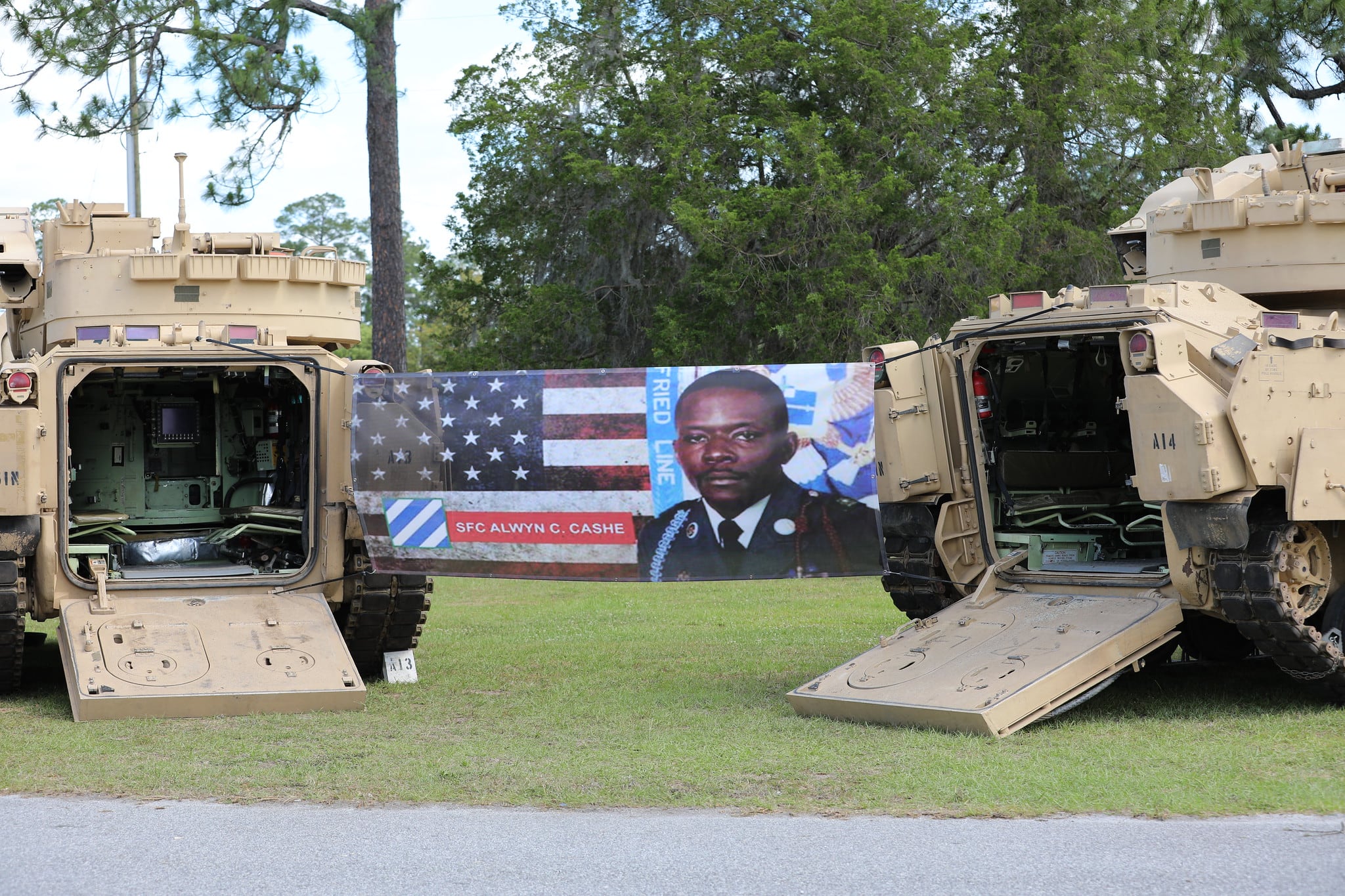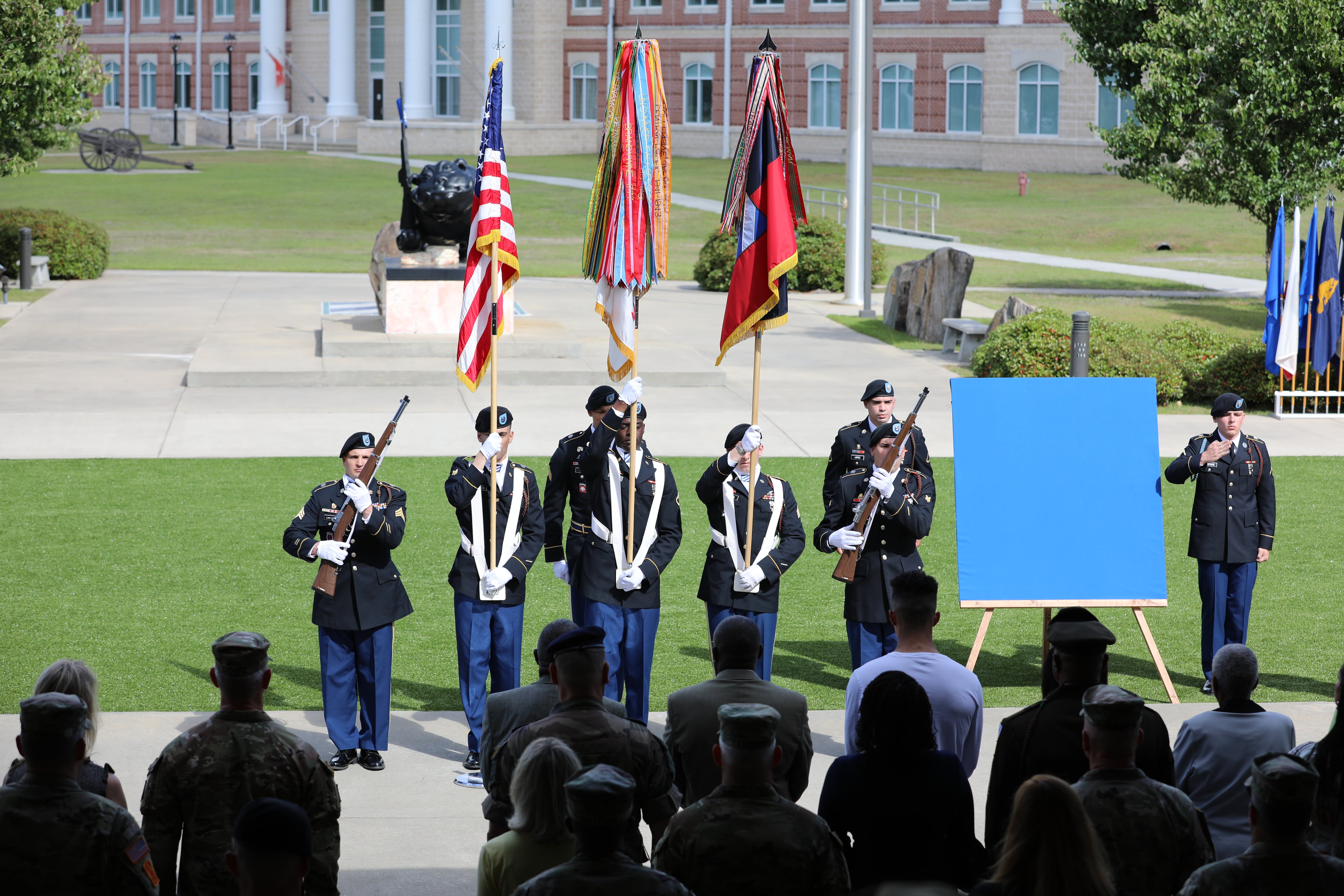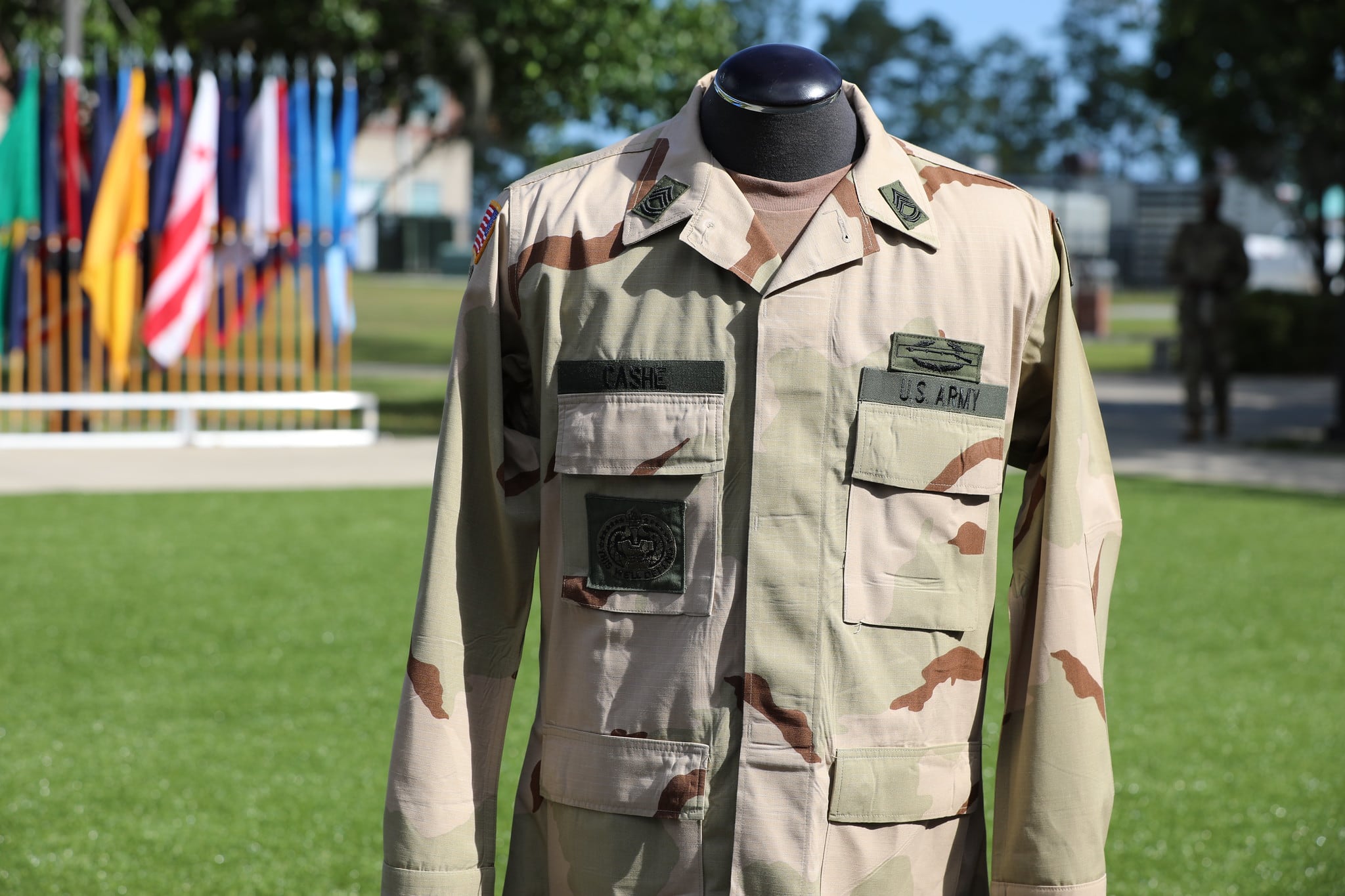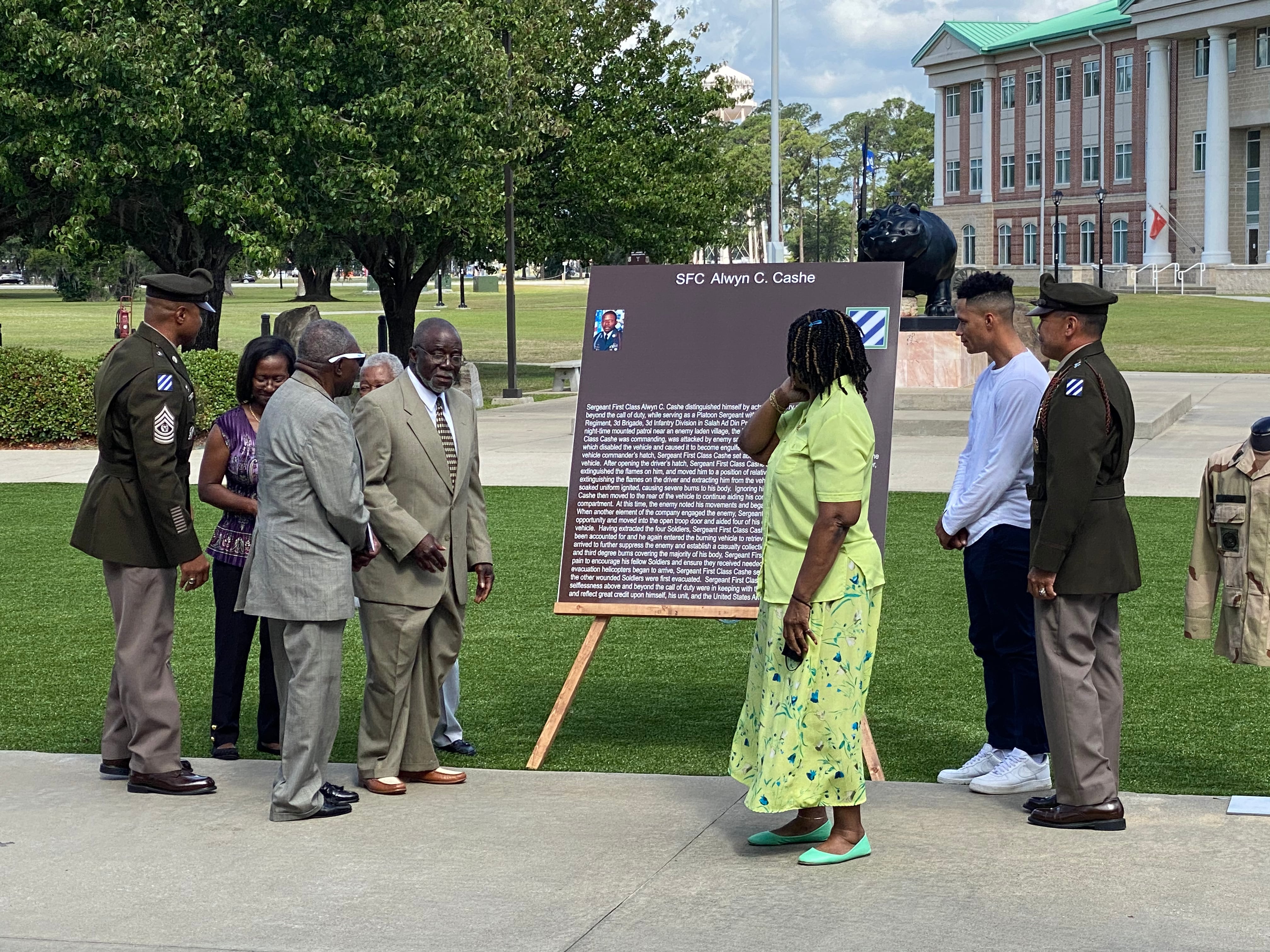FORT STEWART, Ga. — Scattered around Army installations throughout the country, reddish-brown memorial signs labeling buildings tell the stories of their namesakes in distinct white text. They typically have the honoree’s highest combat decoration depicted at the top of the sign.
When you look at the top of the sign in front of the newly-renamed Sgt. 1st Class Alwyn Cashe Garden outside the 3rd Infantry Division headquarters on Fort Stewart, you quickly realize — it’s blank.
“We have intentionally left that blank,” confirmed Maj. Gen. Antonio Aguto, the division’s commanding general, when Army Times asked about the sign. The spot at top remains vacant for a long awaited Medal of Honor.
Cashe’s expected award loomed over the Thursday morning gathering to rename the installation’s ceremonial garden for the Iraq War hero. The event anchored the 3rd Infantry Division’s annual Marne Week, a celebration of the unit’s World War I heritage.
Cashe, whose family was attendance, died of wounds sustained in October 2005 when he pulled, one-by-one, six soldiers and an Iraqi interpreter out of his burning Bradley Fighting Vehicle near Samarra, Iraq.

Despite suffering severe burns on nearly three-quarters of his body, Cashe refused medical treatment until he knew that each of his “boys,” as he called them, were evacuated and receiving medical care first.
For his actions, Cashe received the Silver Star — the U.S. military’s third highest award for valor in combat. He was a platoon sergeant assigned to A Company, 1st Battalion, 15th Infantry Regiment, at the time of the ambush.
His sister, Kasinal White, delivered remarks and reflected on what the event meant to the family.
“This — the 3rd ID — is more important to us than anything,” she said during the ceremony. “Our fight is not over. We are one step closer…We are waiting on the Medal of Honor. We know that will happen.”
Congress passed legislation authorizing Cashe to receive the nation’s highest award for valor in November, but the Trump administration did not award it, and the Biden administration has yet to “officially” contact the Cashe family, White said after the ceremony.

White told reporters she has no hard feelings about the Biden administration’s delay, referencing the upcoming ceremony for retired Korean War veteran Col. Ralph Puckett, which is taking place Friday.
“Col. Puckett is [94] years old, and I do not want him to get his medal posthumously,” said White. “I’ll give him that day…[but] if they call me Monday morning, 0700, I’m down for that.”
Leaders that served with Cashe, including his friends and the officers from his final Iraq deployment, also expressed their hopes for their fallen colleague to receive the nation’s highest award.
The division’s senior enlisted leader, Command Sgt. Maj. Quentin Fenderson, gave an emotional speech before the sign’s unveiling.
“We know he wouldn’t want any of this,” Fenderson said of his friend, who he served with at Fort Benning, Georgia. “He believed that his only acknowledgement that he needed was to ensure his boys [were okay].”
Another contemporary of Cashe, Command Sgt. Maj. Curtis Reid, said his friend did “what a leader is supposed to do,” adding that “it means the world” to see Cashe honored.

Cashe’s company commander on the Iraq deployment, Col. Jimmy Hathaway, also spoke with Army Times.
“It’s pretty special when the Army gets it right,” said Hathaway. “And nobody forgot [about Cashe]…it’s keeping the memory alive of someone who was great.”
The Medal of Honor would be “just one more step to show what he was,” explained his former commander. “We will continue to tell a story — whether he has [the award] or not — of him as that selfless person who put himself in harm’s way for his boys.”
Lt. Col. Leon Matthias, who was Cashe’s platoon leader that day in Iraq, spoke with Army Times after the ceremony and reflected on how the soldiers “loved and hated him, because he was hard on them.”
“But then he also just cared…he truly had their best interests at heart,” Matthias said. “It’ll be a great, great day for the Army to see [the Medal of Honor] come to fruition.”
Davis Winkie covers the Army for Military Times. He studied history at Vanderbilt and UNC-Chapel Hill, and served five years in the Army Guard. His investigations earned the Society of Professional Journalists' 2023 Sunshine Award and consecutive Military Reporters and Editors honors, among others. Davis was also a 2022 Livingston Awards finalist.
